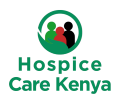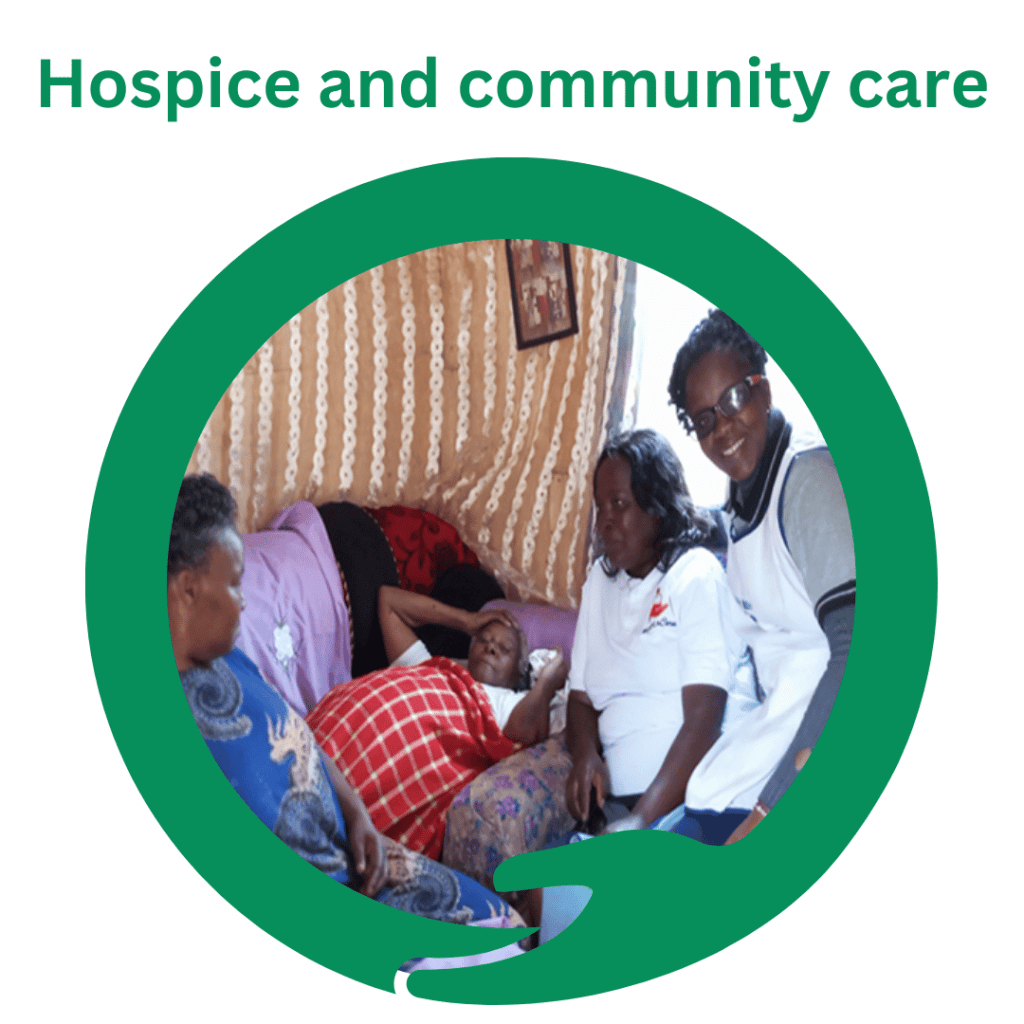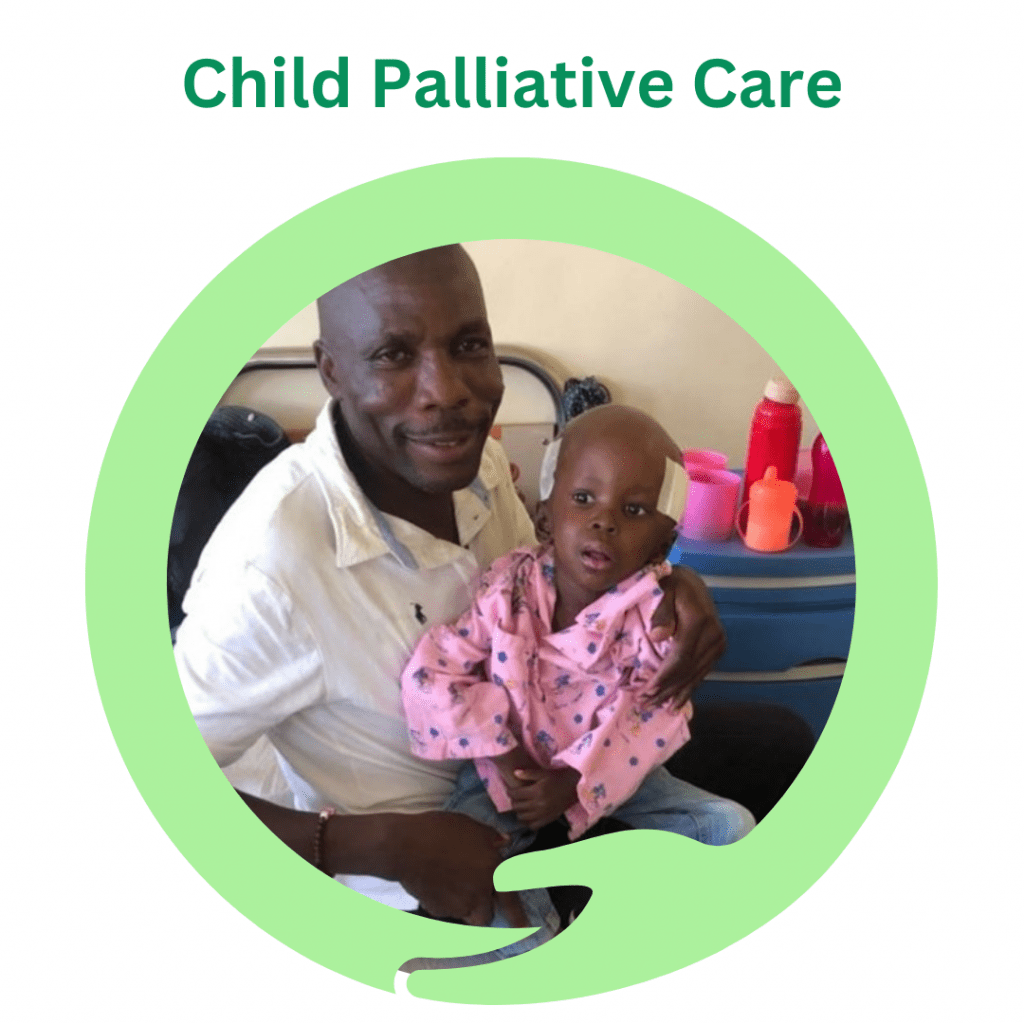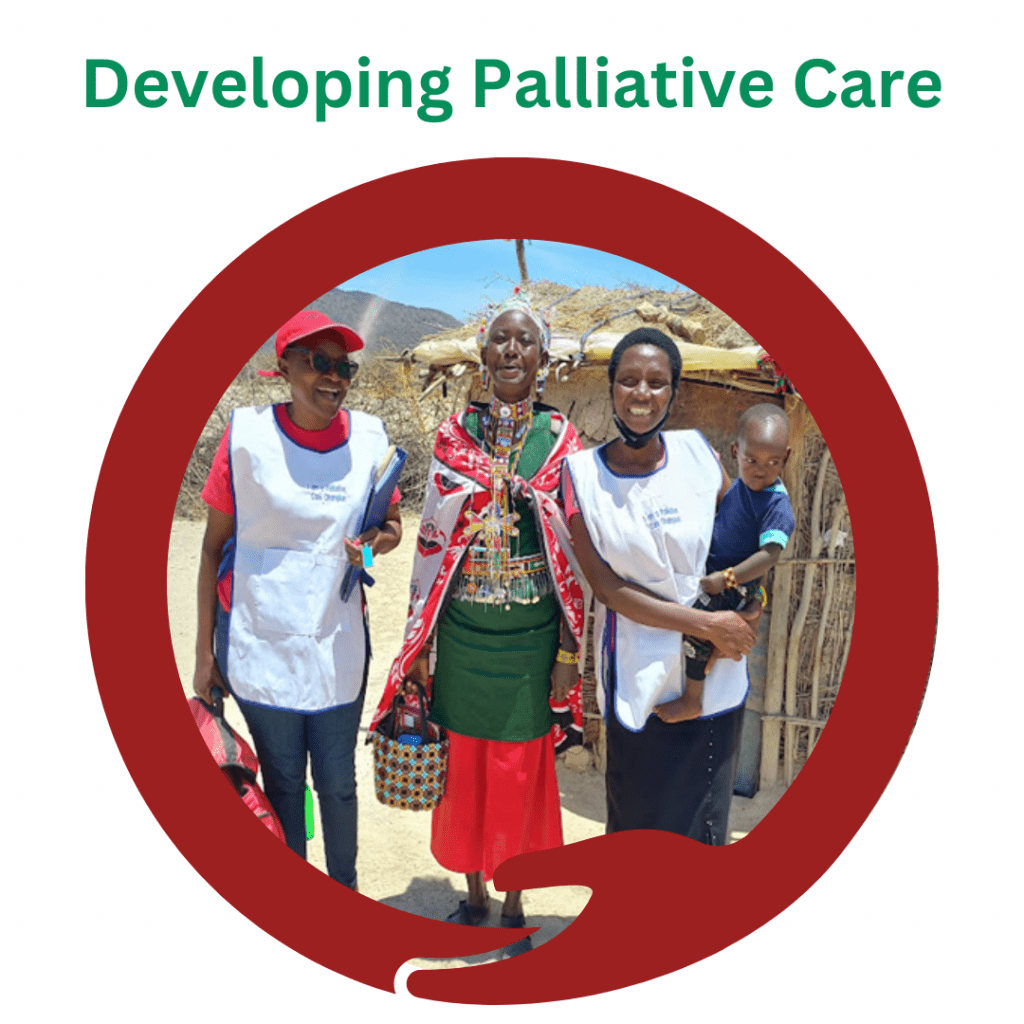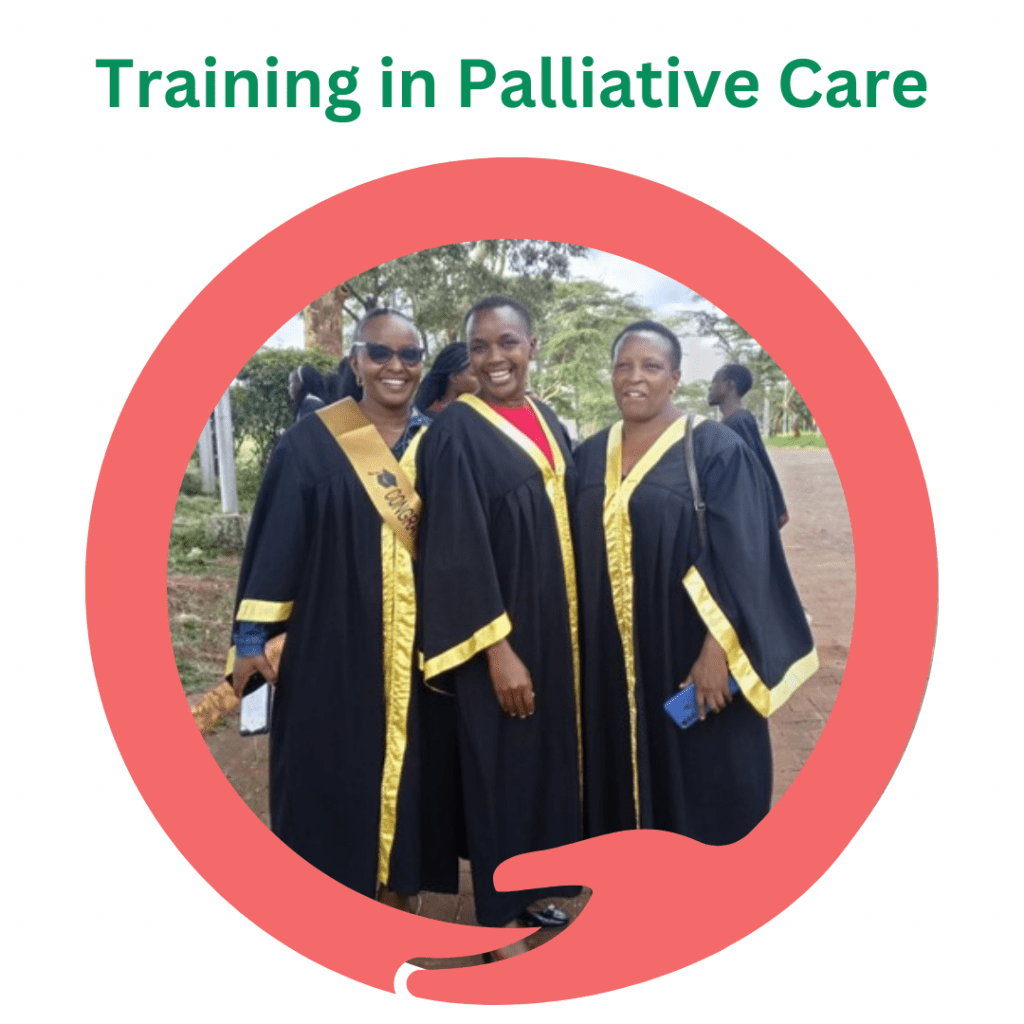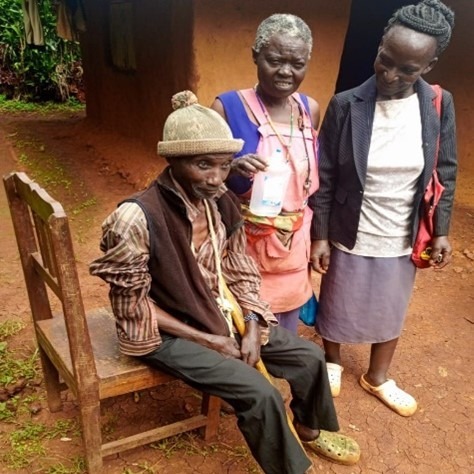At Hospice Care Kenya, we are dedicated to improving access to palliative care for people facing life-limiting illnesses throughout Kenya. We work to ensure that everyone who needs palliative care can receive compassionate and dignified support. Our work focuses on four key areas:
Working with hospices and palliative care units across Kenya, we bring essential care directly to patients. Many are housebound or live in remote areas, making it difficult to reach healthcare facilities. To overcome these challenges, we focus on:
Home Visits: Supporting hospice nurses to provide care to isolated patients.
Community Volunteers: Linking patients with trained volunteers for ongoing support.
Support Groups: Establishing spaces for patients and families to receive guidance and emotional support.
Pain management remains a critical issue, with many suffering due to barriers in morphine distribution. We help supply essential medications, including free morphine. Through these efforts, we are making palliative care more accessible, alleviating suffering and ensuring no one faces a life-limiting illness alone.
Children with life-limiting illnesses need specialised care that addresses their physical, emotional and psychological needs. However, access to paediatric palliative care in Kenya is limited, leaving many children in unmanaged pain and families without support.
We are changing this by expanding child-focused palliative care services. Our work provides pain relief, symptom management and emotional support while helping families navigate the challenges of caring for a seriously ill child. Our paediatric palliative care initiatives include:
Training healthcare workers: Equipping doctors, nurses and community health volunteers with skills to provide specialised paediatric care.
Empowering communities: We tackle stigma by working with community leaders, religious figures and teachers to reduce stigma and foster greater acceptance and inclusion of children with life-limiting conditions.
Supporting families: Offering home visits, workshops and peer support to provide guidance and emotional care.
Improving access to education: We work with schools to ensure children with life-limiting illnesses can continue their education in a supportive environment.
We are committed to strengthening and expanding palliative care services in Kenya, working closely with hospices, hospitals and healthcare providers to develop sustainable programmes, advocate for better access to pain relief and integrate palliative care into the healthcare system. Our efforts aim to tackle major barriers to palliative care, advance services into new geographical areas, and reach the most marginalised communities, including those in Turkana and refugee camps along the Somalia border.
Current projects focus on addressing gender inequality in access to palliative care, ensuring that people from the poorest and most underserved areas such as those in Turkana County, as well as refugees in camps bordering Somalis, have access to high-quality, compassionate care. Our goal is to ensure palliative care is recognised as an essential part of healthcare and available to everyone in need.
Through these initiatives, we are making a real difference in the lives of people facing serious illnesses. With your support, we can continue expanding access to life-changing care across Kenya.
Expanding access to palliative care starts with building a skilled and compassionate workforce. We fund and support training programs for healthcare professionals and community volunteers, equipping them with the knowledge to provide high-quality care to people with life-limiting illnesses.
We train doctors, nurses, and community health workers to improve early diagnosis, symptom management, and end-of-life care. We also support community volunteers who provide essential day-to-day care, easing the burden on families and ensuring patients receive support between hospice visits. Additionally, we sponsor healthcare workers to complete specialized palliative care diplomas, helping to grow Kenya’s palliative care workforce.
By investing in training, we empower more people to deliver compassionate care, ensuring that even the most remote communities have access to the support they need.
Read our stories of lives changed through palliative care
